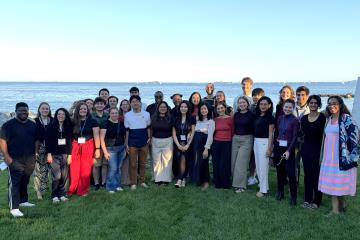J-PAL North America, based at the Massachusetts Institute of Technology, catalyzes randomized evaluations, builds partnerships for evidence-informed policymaking, and helps partners scale up effective programs in the North America region.
About us
J-PAL North America leverages our network of academic researchers from universities across the continent and a full-time staff of researchers, policy experts, and administrative professionals to generate and disseminate rigorous evidence about the most effective ways to reduce poverty and promote economic mobility in our region.
Focus areas
Poverty is a complex and pressing challenge. J-PAL North America aims to reduce poverty by ensuring policy is informed by scientific evidence across a wide range of focus areas.
Engage with us
Funding opportunities
Twice a year, J-PAL North America solicits proposals for pilot projects and randomized evaluations. Researchers in J-PAL North America’s network and their PhD students are eligible to apply. (Interested in joining our research network? Check out this page on Invited Researchers.)
The following requests for proposals (RFP) are open through January 6, 2026:

Partner spotlight: Puerto Rico
Since 2017, J-PAL North America has been fostering strong partnerships with government agencies and researchers in Puerto Rico, and supporting high-quality randomized evaluations to promote a culture of evidence-based decision-making. By advancing the use of rigorous research, we aim to strengthen institutional capacity, enhance governance, and improve lives.

"The Puerto Rico Department of Education, through the Institute for Professional Development, trusts in the valuable relationship that we have developed with J-PAL North America over the past seven years. We have overcome many challenges together to design, implement, and evaluate high-impact projects seeking to improve student achievement."
—Damarys Varela Velez, Operations Manager at the Institute for Professional Development of PRDE (from press release)






